Casinos Should Think Like AP’s
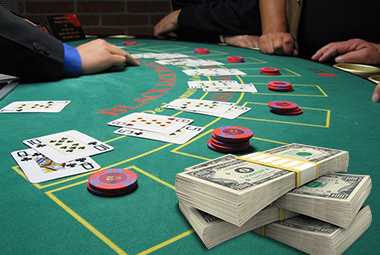
Why do advantage players have the ability to beat the casinos at the games that the casino offers?
There are a number of answers to that question, and many of them boil down to AP’s putting in the work and being willing to look for opportunities where others have found none or are not looking. Furthermore, being a really successful AP often requires possessing a high enough degree of creativity to be able to look for, ‘Angles,’ where they might otherwise be missed.
Of course, those are just reasons that contribute to the answer rather than the answer itself. The fact of the matter is that there is only one actual answer to the question and everything else is nothing more than supporting evidence. So, what is the answer?
Because the casino lets them.
The fact of the matter is that the AP’s get the better of casinos because the casinos, inherently, put them into a position to be able to do that. It is important to note that we are separating actual advantage players from cheaters, as they rightfully should be separated, even though it could be argued that casinos also put cheaters in a position by which they can win by cheating.
The main difference between letting an advantage player win and letting a cheater win is that the cheater is altering either the odds/pays in his/her/their favor whereas the casino is directly handling the advantage player a mathematical advantage. The advantage can exist for a number of reasons, but at the end of the day, were the casino not fundamentally offering a set of conditions that result in a positive expected value for the AP, then the AP would not be able to beat the casino.
For that reason, it is almost understandable why casino staff might feel somewhat insulted when they come to realize that an AP has been spanking the house! It would almost be like playing heads or tails with a gaffed coin, that you own, but your friend figured out a way to turn that gaffed coin against you. You’re supposed to be winning, but for one reason or another, you aren’t.
At the same time, casinos often don’t realize that the existence of legitimate advantage players benefits them in some ways. I am fully convinced that a not insubstantial amount of money is lost by those who try to advantage play (and actually are not doing so) and that the amount of money is so substantial, in fact, that it in and of itself makes up for what is won by AP’s.
We also notice that almost every issue of News & Notes I write we see some story by which an inside job is taking place in the casino and an employee is caught stealing some amount of money over some duration of time. Again, there is a huge difference between advantage play and outright stealing. Although, we must ask ourselves: For every casino employee who is caught stealing, how many are not caught? Can we really believe that casinos are perfectly efficient in this regard and will catch every single employee before that employee either moves on to a different job or simply decides to stop stealing?

I doubt it.
The tools that surveillance had may not have been as technologically impressive then as they are now, but by his own admission, Richard Marcus essentially got his start by bilking his employer, The Four Queens, and rigging the game (as a dealer) to the advantage of players he was working with. I actually have some question as to whether or not his actions should be defined by the word, “Cheating,” because I think, “Stealing,” might be more appropriate. I’ve certainly seen news stories in which what are materially the same actions have been termed as, “Theft.”
The thing is that it is going to be difficult to catch every individual instance of cheating/theft and that the casinos are run by fallible people with fallible eyes and fallible minds. In short, they shouldn’t be expected to be able to catch every single little thing that goes on. It does seem like they would do well to worry more about people who may be working them from the inside as opposed to worrying about advantage players, though.
That is especially true when one considers that casinos could completely stop advantage play from happening in the first place. If some form of advantage play does take place, the casinos have nobody to blame but themselves. At the same time, though, I maintain that the existence of legitimate advantage play does the casinos more good than harm.
Thinking Like An AP
An advantage player does a good deal more than analyzing a game, “Right off the top,” and determining whether or not that game can be played at an advantage. With exception to rare video poker games and some progressive (or games that can be vultured) in certain game states, most games cannot be beaten. Even games that could be theoretically beaten, “Right off the top,” such as Progressives, can only rarely be found in an advantageous condition.
The key to thinking like an AP is that an AP will often have to play a game that, barring any other conditions, additions, alterations or promotions would be a negative expectation game. In fact, some of the best plays take place on games that would otherwise be hugely negative expectation games. There are games out there that most people (many AP’s included) would not think for a second are beatable under any set of conditions.
Advantage players will often think through the effect that promotions and mail may have on certain games and determine whether or not there might be an advantage with those added factors. Additionally, an advantage player will often look at things such as slot points and include that in the calculation. In other words, the goal is to get above 100% all things considered and the player does not have to be at 100% right off the top (and sometimes not even close) in order to do that.
This person is simply doing nothing more than thinking through the conditions that the casino is setting out for him/her and determining whether or not the set of conditions is favorable overall. Perhaps the most amusing aspect of the whole thing is that there is a lot of guesswork involved for the player and almost none for the casino.
For example, a player might want to determine what sort of mail he/she can expect given a certain amount of coin-in on an initial visit to the casino. There are also other factors such as whether or not the casino might, “Kill a card,” for picking up said free play and leaving without putting more coin in and, if so, what is the minimum amount of coin that the player needs to run through. Beyond that, the amount of free play that the player is going to receive against his/her expected loss on the game being played to generate that free play has to be positive in the first place!
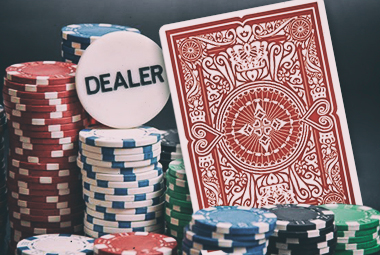
A good deal of these calculations and considerations are guesstimates, and often, they actually involve a little bit of trial-and-error before they can get it right. Barring other potential factors that we won’t discuss, the AP’s have to then share this information so that each of them might be able to go to the casino and, “Play the system.” Additionally, these, “Standard offers,” as I will term them can often be combined with promotions or multiplier days in order to be positive. In some cases, that is the only way they can be positive.
Where the player in question is making guesstimates, the casino theoretically has access to the exact numbers. They know what sort of coin-in (or whatever metric they use) generates what kind of offers and they know what the best game they have on the floor (at base) is. The casinos could theoretically use that information to ensure that no machine player has an advantage just based off of the mail that he/she will generate by ensuring that the free play given does not exceed the total expected loss on the coin-in.
Just that alone would force the advantage player into also specifically incorporating promotions or other things such as multiplier days into the play in order to generate a positive expected value. Even if that could still be done, that factor alone may well make the AP consider the play as not being worth his/her time and the AP may choose to abandon any notion of playing at that casino.
Of course, the casinos could also factor in the potential expected value from the promotions as they would have more specific access to the data than the players would, who again, are largely doing guesswork. The casino could then use that information to ensure that none of the players have the benefit of playing with positive expected value even taking some sort of promotion into consideration. Granted, it’s understandable that the casinos would choose not to do that because they would likely kill the value of the promotions to such an extent that they would turn off their holy grail (slot players) in the process.
Of course, that doesn’t necessarily mean that the casino absolutely has to enable other players to be able to beat them so easily. For instance, if I ran a casino, there is no way that the combination of the games that I offer and mail would generate a positive expected result for anyone. That’s not to say that individuals couldn’t play at an advantage, because as mentioned, my promotions combined with these other things would give them the ability to do so. I’m simply saying that I wouldn’t make it mathematically easy for the players to figure out a way to beat me.
Casinos will often offer a variety of promotions and go straight to, “Don’t allow Video Poker,” as a substitute for an actual protection measure because that is the only thing that the casinos really know about. The fact of the matter is that some promotions are so juicy that the casinos might be beatable from wall to wall on certain promotions, which is to say that the player could play just about any machine in the place at an advantage. Those types of promotions are rare, of course, and advantage players are going to do everything they can to keep them under wraps when they do come up.
The fact of the matter is that the casinos will often offer promotions out of laziness and stupidity without fully understanding how the math of the promotion combines with a given game and changes the value of the game. Again, the casinos would love just to kill video poker and some high-limit slots for the promotion and assume that they have done enough. They haven’t, of course, but that doesn’t mean that there is any excuse for banning players just because they got beat. That’s almost like a bar offering an, “All you can drink,” day for $10 and then losing it on patrons who drink more than $10 worth of booze.
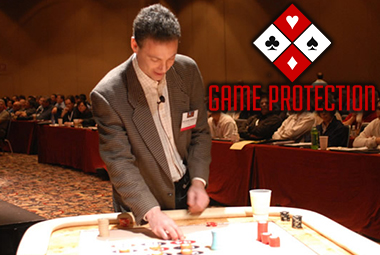
There are a number of game protection measures on table games that can be found all over the internet, as well as elsewhere on this site, that we won’t get into right now. Suffice it to say that there is essentially absolutely no excuse for casinos to be getting beaten on table games straight up in this day and age. For casinos to get beaten on table games right off the top just means that nobody on the casino staff has any great interest in using Google.
The most ironic aspect of the table games is that surveillance is more concerned about the players, a great majority of whom (including AP’s) are playing the game fairly than they are with the employees who may well be robbing them silly. I’ve heard stories from Blackjack card counters, who enjoy some of the smallest percentage edges of any advantage player, being backed off during their first sessions at a given casino, or after only playing a few sessions at a given casino. Surveillance notices these players varying their bets during high counts very quickly, yet some dealers can get away with overpaying confederates, or paying them on losses, for months at a time.
I am actually fairly convinced that more people have lost more money attempting card counting that actual successful card counters have made doing it. In addition to the discipline required to make a meaningful go at it, (that most people don’t have) there is also the fact that card counting fundamentally has a very small margin of error. If your high bet is a black and you have a 1% advantage or perhaps 2% on that bet then you are only making $1-$2 each time you make that bet. In the meantime, a dealer can slide a confederate a black chip, guaranteed, on an intentional mispay and that is a $200 swing instantly given that the player should have lost the bet.
I recently wrote a little bit about a story in which a Pai-Gow Tiles dealer was caught cheating my misplaying hands and had gotten away with it for several months leading up to being caught. One might wonder whether or not the cause of suspicion was a member of surveillance who knew and understood the game and recognized that the dealer was intentionally setting himself badly…
No, as it turns out, the dealer got caught only because the table games manager simply felt like the drop was not what it should have been over a prolonged period of time and linked it up to that dealer. At that point, of course, surveillance was then called to look at whatever they could on that dealer and the suspicions were allegedly confirmed.
Again, the subject has turned back around to cheating and to inside jobs, which is what the casinos should, at the lowest, be equally concerned about. It wouldn’t surprise me to hear that, prior to the suspicions of the table games manager in question, that nobody in surveillance understood the rules of PGT or how the dealer is supposed to set his/her hands. In other words, even if surveillance had been paying attention to the game, it is quite reasonable to accept the possibility that they might not have determined that anything was wrong with it of their own accord.
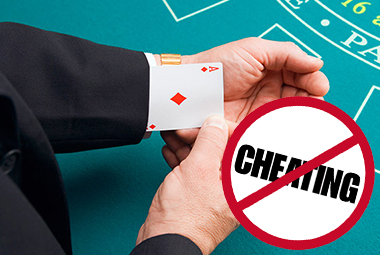
But, we have to do something about those pesky card counters!
When you look at advantage players who are adept at hole-carding and edge-sorting, there can be absolutely no doubt that it takes a very impressive degree of skill for them to be able to do that, but again, it is still the casino who is enabling that to take place. There is a very simple procedure, that should be well-known, that would render edge-sorting largely ineffective even if one side of the playing cards had diamonds and the other side hard squares.
When it comes to hole-carding, the ability for that to happen is just poor training of the way to deal the game or the dealer simply being lackadaisical. Could it be possible that some dealers also happen to be in cahoots with the players in question and the hole carding taking place is effectively cheating? Quite frankly, I would be rather surprised if that has never happened, but good luck to the casino who actually wants to try to prove that one.
The point of the matter is that an understanding of proper dealing procedures and a true desire to enforce that the dealer is playing the game, “Right,” rather than a desire to punish advantage players will result in the casino saving a ton of money on those games. Once again, it is the casino offering the game in question so the casino should be protecting the game in question to the fullest extent.
Many people think that I am pro casino, I’ve even been called a, “Ball washer,” because I acknowledge the right that a casino has to 86 any patron of their choosing. The thing is that I acknowledge the right of any business to do that, not just casinos, it’s just that casinos are one of the only businesses out there that enable their patrons to actually make money off of them rather than the other way around. In my view, that fact doesn’t change their right as a business.
I tend not to look at gambling affairs in any sort of great moral terms, but when it comes to whether or not casinos, “Should,” 86 AP’s, I would argue that they should not. That doesn’t change the fact that, in many cases, they are legally permitted to do so and it doesn’t change the fact that they have the same legal rights and remedies as any other business. However, if you were to put the question, “Is it right,” to me, then I would have to say no.
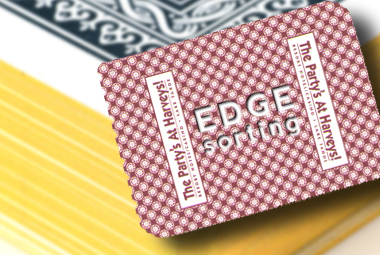
In addition to the fact that the casinos often have bigger things to worry about than AP’s, namely their own staffs, I also believe that it is not, ‘Fair,’ for casinos to be able to kick patrons out simply for beating them under the conditions that the casino has provided for them to play. In the event that there is no cheating going on, the players have absolutely done nothing wrong, the casino has, if it is the goal of the casino not to enable any players to have a mathematical advantage.
To the extent that any casinos have that goal, their inability to prevent some players from having such an advantage often comes as a result of laziness, stupidity or both. The relevant people whose jobs would be to protect certain games are ineffective at their tasks because they either become lackadaisical or have no grasp of the rudiments that enable the game to be beaten to begin with.
In other words, if the goal of a casino is to prevent advantage play, then they could accomplish that goal simply by thinking like an advantage player. It is easier to prevent an advantage player from ever having the opportunity to edge-sort or hole card, for example, than it is for the advantage player to successfully do either of those things. It is easier to prevent a player from having an advantage by, “Playing the mail,” than it is for players to enjoy the advantage that they may garner by doing so.
Granted, there are a few somewhat complex situations in which a casino might be blindsided by a play and there are still a few secrets that are safely tucked away and known only by a few. For the most part, though, game protection measures and fundamental mathematical concepts are readily available public information, and if the casinos are not aware of same, it is because they are choosing not to be out of either laziness or stupidity.
The simple fact is: AP’s are just willing to work harder.
Comments
I recall some guy who bought one of the downtown casinos and received a phone call from the owner of a bar who basically said 'Get here now'. Rather than be offended that the owner of a rather low level business was summoning a very wealthy man, he immediately drove to the bar and learned that the owner had been on the ropes a decade earlier but the millionaire, who was at the time in the wholesale liquor business, kept him on credit when all other distributors were making him pay cash before the driver would even unload the boxes. The bar owner wanted to return the favor by letting him know that at the end of each swing shift several of his top employees met in the bar's back room and split about eight grand worth of chips. It was unclear just how long the practice had been going on, but it always struck me that all those cameras and watching eyes had not discovered it. So alot of sticky fingered employees may indeed be getting away with things.
Originally casino owners were scared after Thorpe's book made the best seller list, then they started expanding the BJ pits because all those would-be card counters could not count for beans. So its likely that alot of would-be Advantage Players are legends in their own mind.
Are there players with 'boarding house reach'? Sure. Casinos soon recognize them and adjust their monthly flyers accordingly. The would be APs probably bring alot of cash and all the casino ever wants is that cash to be at risk. Benny Binion once booked a quarter million dollar line bet... and reaped enough publicity from it for it to have been a bargain for him.
The only real problem casinos seem to be facing is that those darned MBAs seem to have purged the "best and the brightest" and replaced them with the equivalent of "ploppies" who just happened to get lucky and be promoted. The casino wants more bodies walking thru the door but doesn't realize that some of those are going to be sharpies, not ploppies. And when those people leave the casino they will be taking the casino's money with them.
Thanks for the comments! They are about as solid as it gets and there's nothing I can add to them.



